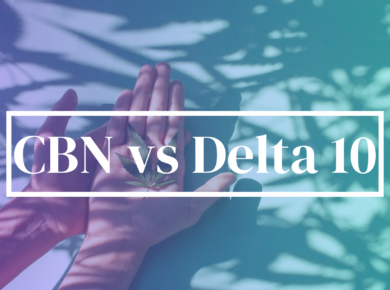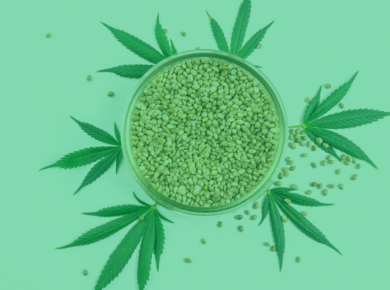Delta 8-THC and CBCV are fascinating cannabinoids present within hemp and cannabis plants. Though both stem from the same botanical origins, their distinct chemical structures give rise to unique attributes for each.
Delta 8-THC, often labeled as a secondary cannabinoid, is closely related to Delta 9-THC, the predominant cannabinoid in cannabis. While it mirrors the structure of Delta 9-THC, there are some notable distinctions. Noted for its psychotropic effects, Delta 8-THC is generally viewed as milder than the Delta 9 variant.
On the flip side, CBCV stands as a non-psychoactive cannabinoid, branching out from another known cannabinoid, CBC (Cannabichromene). Though it hasn’t garnered as much attention as Delta 8-THC, early research hints at its potential advantages through its synergy with the body’s endocannabinoid system.
In essence, despite both being cannabinoids, Delta 8-THC and CBCV manifest differences in their molecular makeup, attributes, and potential impacts. These compounds’ breadth and intricacy are genuinely enthralling, yet more investigations are essential to grasp their attributes and possible applications fully.
Many States allow hemp derived cannabinoids under the 2018 Farm Bill as long as they contain less than .3% D9 THC. Some States have explicitly banned cannabinoids like Delta 8, so check your local rules and regulations before purchasing.
Here’s the rules for Kush.com and more details
Frequently Asked Questions (FAQs)
- What is Delta 8-THC’s Connection to Hemp? Delta 8-THC is a subtle cannabinoid discovered within the hemp vegetation. It mirrors Delta 9-THC, the renowned psychoactive element in cannabis but is celebrated for its diminished psychoactive intensity.
- Can You Elaborate on CBCV (Cannabichromevarin) and Its Hemp Affiliation? CBCV is a benign cannabinoid embedded in hemp. It’s a kin of CBC (Cannabichromene), another cannabis-residing cannabinoid. CBCV, though not as popular as other cannabinoids, is gaining traction due to its prospective qualities.
- How Do the Extraction Methods for Delta 8-THC and CBCV Differ? Both these cannabinoids are derivable from hemp using analogous techniques. Yet, given Delta 8-THC’s rarer presence, its extraction is more intricate, necessitating a conversion from other cannabinoids.
- How Do Hemp Products Legally Incorporate Delta 8-THC and CBCV? Cannabinoid legality is quite fluid, contingent on the locale. In the U.S., for instance, hemp products are permissible provided they contain under 0.3% Delta 9-THC. Still, Delta 8-THC’s legal standing remains nebulous in numerous states. Being non-intoxicating, CBCV usually has a legal nod in hemp items.
- Could You Compare the Effects of Delta 8-THC and CBCV? Delta 8-THC is lauded for its mind-altering properties, albeit weaker than Delta 9-THC’s. Conversely, CBCV, being non-psychotropic, doesn’t induce the characteristic THC “high”. The full scope of CBCV effects remains under study.
Shop
Similar Product Searches You Might Be Interested In:




